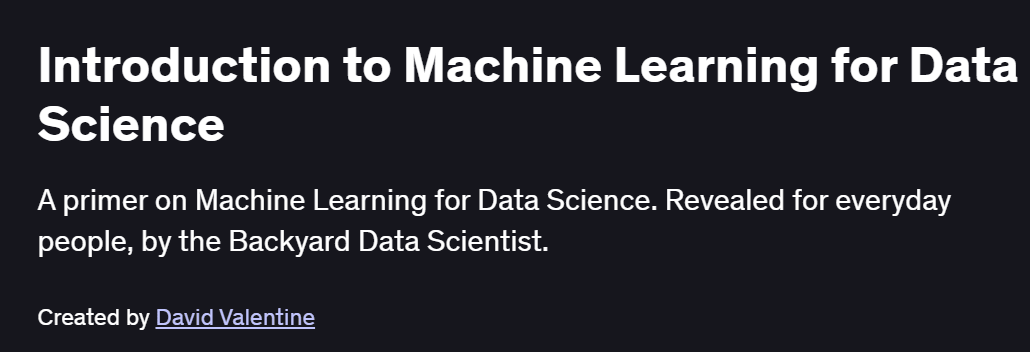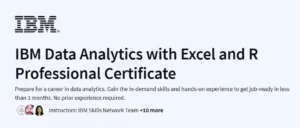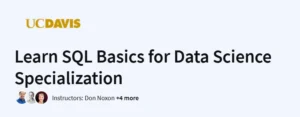What will you in Introduction to Machine Learning for Data Science Course
Grasp core machine learning concepts: supervised vs. unsupervised learning, overfitting, and model evaluation
Implement algorithms such as linear regression, logistic regression, decision trees, and k-means clustering
Preprocess data: handling missing values, feature scaling, encoding categorical variables, and dimensionality reduction
Evaluate model performance using metrics (MSE, accuracy, precision, recall, F1-score) and cross-validation
Deploy trained models with simple pipelines and understand basic considerations for productionization
Program Overview
Module 1: Introduction & Environment Setup
⏳ 30 minutes
Installing Python, Jupyter Notebook, and key libraries (scikit-learn, pandas, matplotlib)
Overview of the ML workflow and dataset exploration
Module 2: Data Preprocessing & Feature Engineering
⏳ 1 hour
Handling missing data, outliers, and normalization/standardization
Creating new features, encoding categoricals, and dimensionality reduction (PCA)
Module 3: Supervised Learning – Regression
⏳ 1 hour
Implementing linear and polynomial regression with scikit-learn
Assessing model fit, regularization techniques (Ridge, Lasso), and bias-variance trade-off
Module 4: Supervised Learning – Classification
⏳ 1 hour
Training logistic regression, k-nearest neighbors, and decision tree classifiers
Hyperparameter tuning with grid search and evaluating with confusion matrices
Module 5: Unsupervised Learning
⏳ 45 minutes
Applying k-means clustering and hierarchical clustering for segmentation
Using Gaussian mixture models and silhouette scores for cluster validation
Module 6: Ensemble Methods & Advanced Models
⏳ 1 hour
Boosting (AdaBoost, Gradient Boosting) and bagging (Random Forest) techniques
Understanding feature importance and improving model robustness
Module 7: Model Evaluation & Validation
⏳ 45 minutes
Cross-validation strategies, learning curves, and ROC/AUC analysis
Addressing class imbalance with resampling and metric selection
Module 8: Deployment & Best Practices
⏳ 30 minutes
Building a simple prediction pipeline and saving models with joblib
Key considerations for production: latency, monitoring, and data drift
Get certificate
Job Outlook
Machine learning expertise is highly sought for roles such as Data Scientist, ML Engineer, and AI Specialist
Applicable in industries from finance and healthcare to tech and e-commerce for predictive analytics
Foundation for advanced topics: deep learning, NLP, computer vision, and big-data frameworks
Opens pathways to research, product development, and leadership in data-driven organizations
Specification: Introduction to Machine Learning for Data Science
|





